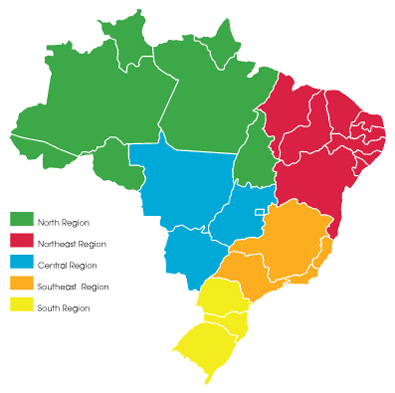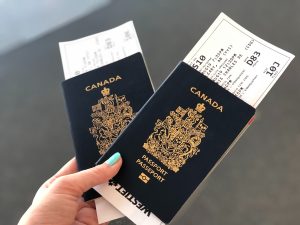Things you need to know about health in Brazil
Brazil has a great diversity when it comes to tourism: amazing natural destinations, warming and welcoming people, a rich and diverse culture, extraordinary cuisine and its unique flavors, all mixed in this melting pot in a territory of continental dimensions.
Despite all of those characteristics and attractions, some tourists and foreigners may feel insecure to travel to Brazil, regarding their health. Like every tropical country, Brazil could be susceptible to some diseases and conditions that are related to the weather and to some insects like mosquitoes capable of transmitting different kinds of sickness.
In order to help you travel peacefully, we gathered all the information you must to know about health in Brazil as: the most common illnesses, the public health system and the ways to prevent some diseases.
Brazil has a continental dimension

If you hail from Europe, it might be hard to grasp how large Brazil is. This country can fit almost every European country in the Brazilian territory.
Having such continental-size in a tropical area, Brazil is home for an amazingly diverse ecosystem
In the North is where the Amazon rainforest is located. There the main cities are Manaus and Belém do Pará.
The Northeast, offers some of the most amazing beaches in the country and that can have very dry and desert-like weather in some areas. Main Northeast cities can include Salvador, Natal, Fortaleza, Maceió, and Recife.
The Center-West has really dry weather in some areas, with the predominance of vegetation named “Cerrado”, similar to the savanna. There are also some wetlands and the main cities are Brasília and Cuiabá.
The Southeast is where cities such as Rio de Janeiro and São Paulo are located. They have different kinds of vegetation but are mostly known for having big cities and metropolitan areas.
There’s also the South, which is famous for having “pampas”, large areas that have no mountains or elevations. In the South, the weather is cooler and colder than in the rest of Brazil. In some cities, you may find light snow during the winter. The main cities include Curitiba, Porto Alegre, and Florianópolis.
Brazil is so diverse that each of its regions has its own peculiar health standards and most common diseases. You may easily find cases of malaria in the North area of the country, but they are very rare in the South and Southeast.
Travel Insurance
Travel insurance is required to travel to Brazil and immigration – also called “Polícia Federal – might ask you to show proof that you have hired appropriate health insurance before allowing you to enter the country.
Good medical care may be easily found in larger cities, such as São Paulo, Rio de Janeiro, Brasília and Porto Alegre. It may be harder to find qualified assistance in rural areas, but most of the country is covered with health centers that may provide support during your trip in Brazil.
Traveling is a moment of pleasure and relaxation, to have travel insurance is extremely important so you are well prepared in case something doesn’t go as planned (let’s not rely on sheer luck). To prevent any surprises or issues, always hire travel insurance to keep your mind at ease.
Medical check-up before traveling
Private health care could be quite expensive in Brazil. The reason why, we highly recommended you to have a health check-up, at least one month before you go aboard.
Most common diseases
Yellow Fever
The Yellow Fever is caused by a virus that enters your body via mosquito bites. It was more common in rural areas, with dense forests, but recently there was an outbreak that hit large cities such as São Paulo, Curitiba, and Rio de Janeiro.
Yellow fever can lead to fever, headaches and body spasms. It can be cured, but it also can lead to death and complications on the liver, which can make the patient look yellowish.
There’s a vaccine that prevents the Yellow Fever, it needs to be taken by everyone planning to come to Brazil. Furthermore, the use of repellents is largely encouraged, even in big cities. If you plan on doing outdoor activities you may also use clothes that cover your entire body and leave little room to get a mosquito bite – long sleeve UV shirt might come handy to protect you from both mosquitos and sun (our summer is quite hot).
Zika Virus, Dengue, and Chikungunya
These three diseases are also caused by mosquitos bite and they have very common symptoms. They all start pretty much like the common cold, but the person can develop red and white marks all over the body. There may also be some nausea and conjunctivitis.
There is no cure for these three conditions and the patient has to rest and stay well-hydrated until the body fights the virus on its own.
Dengue is common throughout the country and is very present in the South and Southeast. While there may be cases of Zika virus and chikungunya in São Paulo and Rio de Janeiro, these diseases are more common in the North and Northeast part of the country.
There’s an alert for Zika Virus and pregnant women, most specifically, if pregnant women contract Zika Virus. Recently, scientists found a relation between the Zika virus and microcephaly, a condition in which the baby’s head (when born and during early development) is smaller than what it should be, causing late development and even mental disability. There are no vaccines for the zika virus and pregnant women should avoid travel to Brazil, especially to areas such as the North and Northeast of the country.
A vaccine to prevent dengue is being tested, but it is yet to be made available in the mass market. There are no vaccines for chikungunya. Again, the best way to prevent these conditions is to use repellent if you will be visiting areas with a lot of nature and dense forests.
Malaria
This is a condition that might affect only people that travel to the North of Brazil, to visit cities like Manaus and Belém, and that are located in the Amazon rainforest area. Malaria is also caused by mosquito bites and it causes mostly very high fevers, combined with shivers, and yellowish skin.
A vaccine for malaria is being tested and should be available in the next few years.
This is another disease that heals itself, so the person is just medicated to relieve the symptoms.
Schistosomiasis
The schistosomiasis is a disease caused by a parasite that enters your body through small cuts in your skin or via unpurified water. The parasite stays in your intestines and may cause you inconveniences such as a bloated stomach and loss of weight.
To prevent it, avoid swimming in lakes and rivers where you can see that there are a lot of crabs and slugs.
Measles
Measles was eradicated from Brazil 10 years ago, but there has been a recent outbreak in urban areas, located in São Paulo and Rio de Janeiro. The whole population is receiving new shots of the vaccine to prevent the disease from spreading.
If you’re planning on traveling to Brazil, make sure you have your measles shot.
are a lot of crabs and slugs.
COVID 19/ New Corona Virus
Unfortunately, the COVID-19 Corona Virus has arrived in these tropical lands as well.
Keeping you safe and informed of what is going on over here is our number one priority. The reason why we have selected the most relevant news for you.
Learn more about: COVID 19 / New Corona Virus – Traveling to Brazil
In case of an emergency…
In case of a major emergency, such as a car crash or a serious accident, you may be taken to a public hospital by an ambulance. Brazil’s public health service is named SUS (Sistema Único de Saúde) and is totally free.
For traffic accident or fire, you may call the firefighters by dialing 193 (national number).
If you need the police, just call 190 (national number).
And if you need an ambulance, you will need to call SAMU (Serviço de Atendimento Médico de Urgência), by dialing 192 (national number).
Be sure to have the number for your country’s embassy and consulate, in case you need any consular help during your travel to Brazil.
Travel to Brazil
It’s totally possible to stay healthy while traveling to Brazil. Remember to have your vaccine shots up to date and pack a good repellent for the outdoors activities. Don’t forget the sunscreen to avoid sunburn! We’re sure you will have a great time here!
Do you have any questions about health in Brazil? Share them in the comments!
Not sure if you need visa to travel to Brazil?
Find out here: Visa exemption for travel to Brazil




